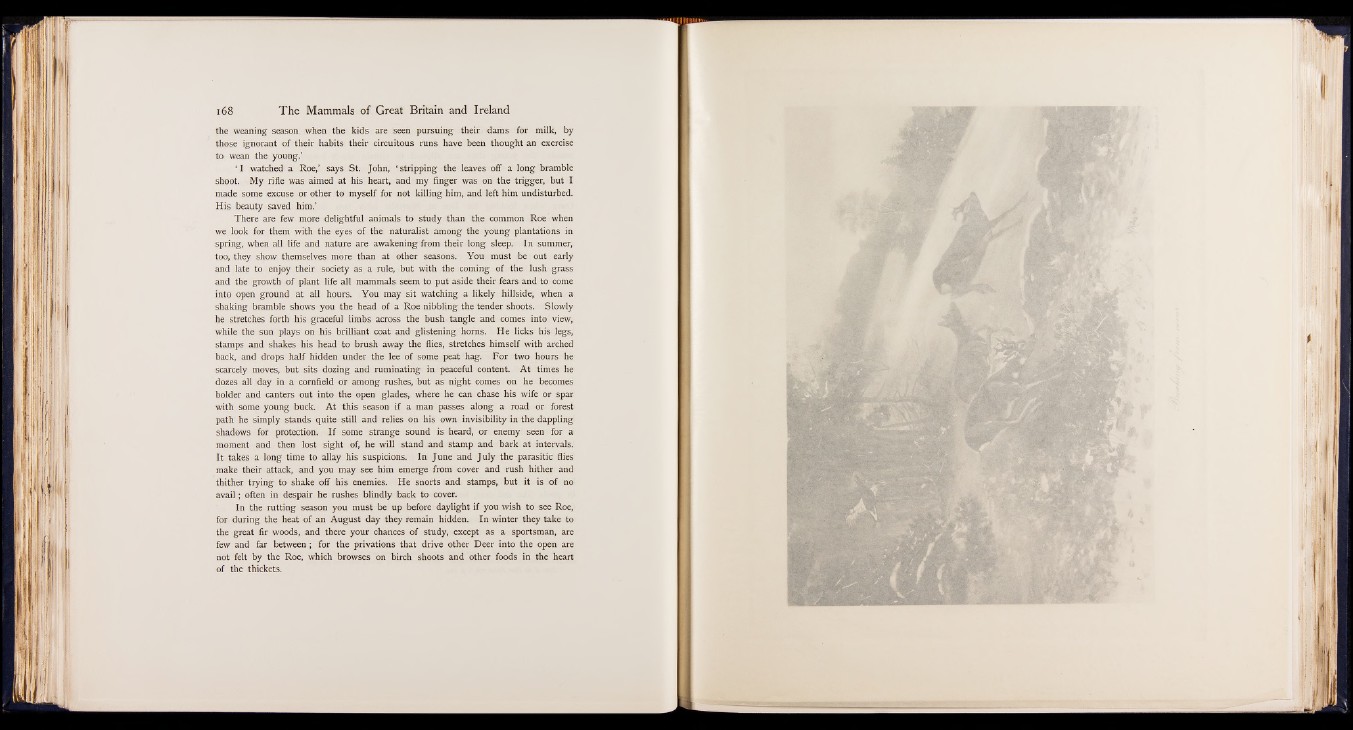
168 The Mammals of Great Britain and Ireland
the weaning season when the kids are seen pursuing their dams for milk, by
those ignorant of their habits their circuitous runs have been thought an exercise
to wean the young.’
‘ I watched a Roe,’ says St. John, ‘ stripping the leaves off a long bramble
shoot. My rifle was aimed at his heart, and my finger was on the trigger, but I
made some excuse or other to myself for not killing him, and left him undisturbed.
His beauty saved him.’
There are few more delightful animals to study than the common Roe when
we look for them with the eyes of the naturalist among the young plantations in
spring, when all life and nature are awakening from their long sleep. In summer,
too, they show themselves more than at other seasons. You must be out early
and late to enjoy their society as a rule, but with the coming of the lush grass
and the growth of plant life all mammals seem to put aside their fears and to come
into open ground at all hours. You may sit watching a likely hillside, when a
shaking bramble shows you the head of a Roe nibbling the tender shoots. Slowly
he stretches forth his graceful limbs across the bush tangle and comes into view,
while the sun plays on his brilliant coat and glistening horns. He licks his legs,
stamps and shakes his head to brush away the flies, stretches himself with arched
back, and drops half hidden under the lee of some peat hag. For two hours he
scarcely moves, but sits dozing and ruminating in peaceful content. At times he
dozes all day in a cornfield or among rushes, but as night comes on he becomes
bolder and canters out into the open glades, where he can chase his wife or spar
with some young buck. At this season if a man passes along a road or forest
path he simply stands quite still and relies on his own invisibility in the dappling
shadows for protection. I f some strange sound is heard, or enemy seen for a
moment and then lost sight of, he will stand and stamp and bark at intervals.
It takes a long time to allay his suspicions. In June and July the parasitic flies
make their attack, and you may see him emerge from cover and rush hither and
thither trying to shake off his enemies. He snorts and stamps, but it is of no
avail; often in despair he rushes blindly back to cover.
In the rutting season you must be up before daylight if you wish to see Roe,
for during the heat of an August day they remain hidden. In winter they take to
the great fir woods, and there your chances of study, except as a sportsman, are
few and far between; for the privations that drive other Deer into the open are
not felt by the Roe, which browses on birch shoots and other foods in the heart
of the thickets.